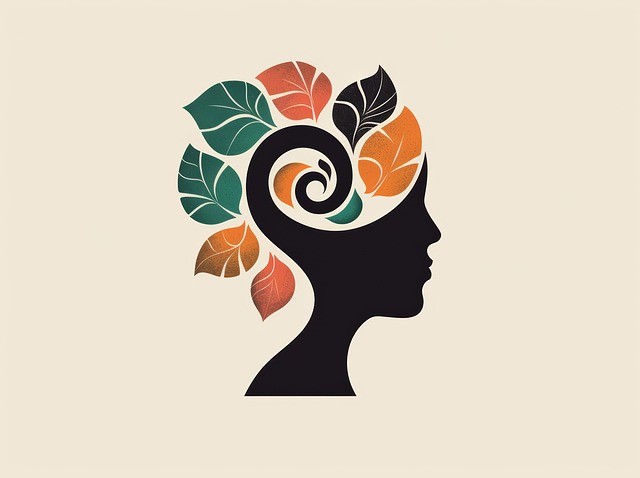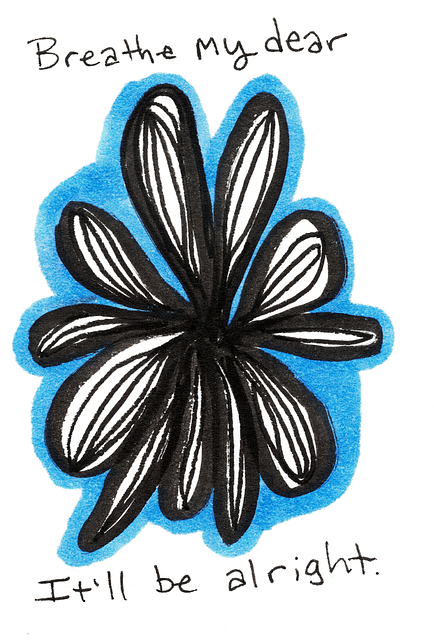Anxiety among the elderly is a complex issue requiring specialized care due to unique challenges like physical health issues, cognitive decline, and social isolation. Effective strategies include tailored therapy focusing on resilience building and mindfulness meditation, public awareness campaigns to reduce stigma, and access to addiction treatment programs addressing comorbid anxiety and substance abuse. Recognizing drug or alcohol misuse in seniors is crucial, with tailored support networks, educational resources, and community outreach aiding prevention and early intervention. Holistic approaches integrating physical activity, balanced diets, and mental wellness techniques complement specialized therapy programs for drug abuse recovery, promoting emotional health and enhanced quality of life for elders.
Anxiety is a prevalent issue among the elderly, presenting unique challenges that require tailored approaches. This article explores comprehensive strategies to manage anxiety in seniors, addressing specific concerns and offering practical solutions. We delve into understanding the nuances of elderly anxiety, recognizing substance abuse signs, and exploring diverse therapy options. Additionally, it highlights lifestyle adjustments, coping techniques, and support systems crucial for anxiety relief, with a focus on empowering elders and their families through effective care. Discover insights into managing drug abuse in seniors, emphasizing the importance of holistic wellness.
- Understanding Elderly Anxiety and Its Unique Challenges
- Recognizing the Signs of Substance Abuse in Seniors
- Exploring Effective Therapy Options for Elderly Individuals
- Lifestyle Changes and Coping Strategies for Anxiety Relief
- Support Systems and Resources for Managing Drug Abuse in Elders
Understanding Elderly Anxiety and Its Unique Challenges

Anxiety among the elderly is a complex issue that demands specialized attention due to its unique manifestations and underlying causes. As individuals age, they often face various physical health challenges, cognitive decline, and social isolation, which can significantly contribute to elevated levels of anxiety and stress. The unique challenges faced by older adults include managing chronic illnesses, adjusting to lifestyle changes, and dealing with the loss of loved ones or friends, all of which can be exacerbated by substance abuse issues like drug or alcohol dependency.
The impact of anxiety in later life may go unnoticed due to age-related stereotypes, but it’s crucial to recognize its presence. Traditional therapy approaches might need to be tailored to suit the needs of elders, focusing on resilience building and mindfulness meditation techniques as evidence-based interventions. Public awareness campaigns development targeting this demographic is essential to reduce stigma, encourage help-seeking behaviors, and improve access to specialized care, including addiction treatment programs that address comorbid anxiety and substance abuse issues effectively.
Recognizing the Signs of Substance Abuse in Seniors

Recognizing substance abuse in seniors is a critical aspect of their overall well-being and often requires keen observation. As elders age, they may become more susceptible to drug or alcohol misuse due to various factors like loneliness, health issues, or the side effects of medications. Signs can include sudden changes in behavior, such as increased irritability, social withdrawal, or dramatic mood swings. Physical indicators might be present too, like a decline in personal hygiene, unexpected weight loss or gain, or poor decision-making, which could lead to financial problems or legal issues.
Therapy for elders dealing with drug abuse is tailored to their unique needs. A comprehensive approach addressing mood management and stress reduction can be life-changing. Community outreach programs implementing support networks and educational resources play a vital role in prevention and early intervention. By combining these strategies, seniors can receive the necessary help to overcome substance abuse, improve their quality of life, and regain control over their moods and daily routines.
Exploring Effective Therapy Options for Elderly Individuals

Anxiety is a prevalent issue among the elderly population, often exacerbated by physical health problems and life transitions. Exploring effective therapy options tailored for seniors is crucial in addressing this concern. Traditional talk therapy, such as cognitive-behavioral therapy (CBT), has shown promise in managing anxiety symptoms. This approach helps individuals identify and change negative thought patterns and behaviors contributing to their anxiety.
Additionally, alternative therapeutic methods can be beneficial for the elderly. For instance, art therapy and music therapy have been integrated into mental wellness podcast series production, offering non-verbal avenues for expression and emotional release. Crisis intervention guidance and trauma support services are also vital, as many elders may carry unresolved traumas or experience acute crises that require specialized attention. Moreover, addressing drug abuse or substance abuse issues is essential, as these can both cause and exacerbate anxiety, especially in older adults.
Lifestyle Changes and Coping Strategies for Anxiety Relief

Anxiety management for elders often involves a holistic approach that combines lifestyle changes and coping strategies. Encouraging regular physical activity, maintaining a balanced diet, and prioritizing quality sleep can significantly reduce anxiety levels. These simple yet effective habits not only promote emotional well-being but also enhance overall resilience in older adults. Additionally, engaging in activities like mindfulness meditation, deep breathing exercises, or joining social groups can provide much-needed support networks, helping to alleviate stress management challenges.
In addressing drug abuse and substance abuse issues, therapy plays a crucial role in anxiety relief for elders. Specialized programs tailored for seniors focus on both the physical and psychological aspects of recovery while incorporating emotional well-being promotion techniques. These therapies aim to help individuals break free from destructive patterns by offering alternative coping mechanisms and fostering a sense of purpose. By combining these approaches, elders can not only manage anxiety effectively but also build resilience, leading to improved quality of life.
Support Systems and Resources for Managing Drug Abuse in Elders

Managing drug abuse in older adults requires a multifaceted approach that considers their unique needs and challenges. Support systems play a crucial role in their recovery journey. Family members, caregivers, and close friends can be powerful allies by offering emotional support, practical assistance, and encouragement throughout therapy for elders with substance abuse issues.
Various resources are available to combat drug abuse among the elderly population. Mental wellness coaching programs tailored for seniors can help them develop coping strategies and enhance their mental resilience. Communication strategies, which address the often-present mental illness stigma reduction efforts, prove invaluable in fostering open dialogues about addiction. These initiatives promote understanding and reduce barriers that might hinder elders from seeking help. Additionally, integrating support groups specifically designed for older adults with substance use disorders can provide a sense of community, peer mentorship, and shared experiences to facilitate their path to recovery.
Anxiety management is a multifaceted approach, especially for the elderly population who face unique challenges. By understanding the specific needs of seniors and recognizing signs of substance abuse, we can provide effective support. Exploring therapy options tailored to elders, implementing lifestyle changes, and fostering strong support systems are crucial steps in alleviating anxiety and addressing drug abuse issues. With the right resources, we can empower seniors to lead fulfilling lives, free from the burden of excessive worry and addiction. Effective therapy, coupled with holistic coping strategies, offers a promising path forward for managing both anxiety and substance abuse in the elderly.














